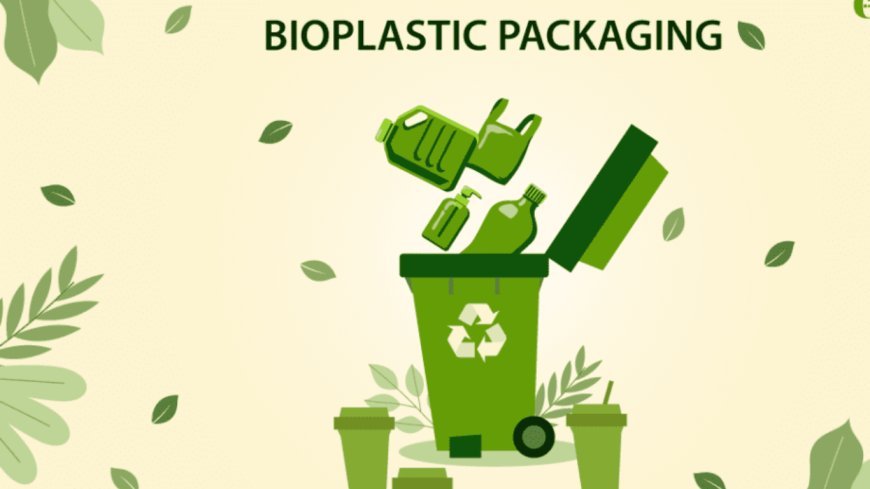Bioplastics Made of Hemp: The Potential and Hope for Sustainable Packaging
In light of the increasing focus on sustainability in various industries, hemp bioplastics are a crucial step towards a more environmentally friendly future. They encourage creativity and circularity in packaging methods.

Hemp-based bioplastics are a viable option in a world where plastic waste is a problem. These biodegradable, renewable, and low-carbon bioplastics—which come from the adaptable hemp plant—address urgent environmental issues. In light of the increasing focus on sustainability in various industries, hemp bioplastics are a crucial step towards a more environmentally friendly future. They encourage creativity and circularity in packaging methods.In light of the increasing focus on sustainability in various industries, hemp bioplastics are a crucial step towards a more environmentally friendly future. They encourage creativity and circularity in packaging methods.
There is no denying that plastic is a constant in our lives. Plastic is convenient and long-lasting for everything from water bottles to supermarket bags. But the environmental cost is starting to show: microplastics in our oceans, landfills brimming with 8.3 billion metric tons of plastic garbage by 2021, and a reliance on fossil fuels.
The need for firms to prioritize sustainability has become increasingly important in the ever-changing modern context. The global waste management industry, estimated to be worth USD 423.4 billion in 2021, is projected to increase to USD 542.7 billion by 2026, with a compound annual growth rate (CAGR) of 5.1% expected between 2022 and 2031.
"Governments and various organizations globally are increasingly compelled to enhance their waste management infrastructures by emphasizing reuse, recycling, and waste-to-energy conversion due to escalating social and environmental concerns," says Abhishek Agashe, co-founder and CEO of Elima. People can work together to create a more sustainable future where resources are conserved, waste is reduced, and environmental impacts are lessened by adopting the motto "Every Person's Responsibility matters." This will bring us one step closer to accelerating the circular economy and supporting sustainability initiatives. In addition, this will encourage innovation and the development of solutions for fostering circularity and building a more sustainable living ecology, all of which are critical to achieving the objectives of "Mission 2047 Viksit Bharat."
"Hemp-based bioplastics emerge as a beacon of hope, offering a sustainable alternative for the packaging industry," says Sandeep Kumar Tyagi, Co-Founder and COO of Ukhi India. These bioplastics, which are made from the quickly expanding hemp plant, are renewable, biodegradable, and need less energy to make than conventional plastics made from petroleum.
The Benefits of Hemp-Based Bioplastics for the Environment :
Tyagi notes that there are several advantages for the environment from hemp-based bioplastics:
1-Biodegradable
Hemp bioplastics break down organically in a matter of months, in contrast to conventional plastics, which can linger in landfills for millennia. This considerably lessens the pollution caused by plastic and its harmful effects on ecosystems.
2-Renewable Resource
Hemp is a crop that grows quickly, needs little water, and can be grown in a variety of climates. It can be harvested several times a year, and yields of up to 25 tons per hectare are estimated. Because of this, it is a resource that is both plentiful and sustainable.
3-Reduced Carbon Footprint
Up to 15 tons of carbon dioxide per hectare are absorbed from the atmosphere during hemp growth. Furthermore, compared to conventional plastics, hemp bioplastics take less energy to produce, which lowers greenhouse gas emissions.
4-Reduced Reliance on Fossil Fuels
We may reduce our reliance on fossil fuels as a source of plastic manufacture by using hemp bioplastics. This promotes a safer and more sustainable future.
The Benefits of Hemp Bioplastics: Go Beyond Sustainability
Although one of the main motivators is the environmental benefits, hemp bioplastics also have other benefits:
● Versatility: Hemp bioplastics are suitable for a wide range of packaging applications, such as food containers, bottles, and films, because they can be molded into a variety of shapes and forms.
● Durability: Bioplastics derived from hemp exhibit remarkable strength and may be tailored to fulfill certain demands for pliability and durability.
● Non-Toxic: These bioplastics are perfect for food packaging because they are safe and don't harm humans.
What's Your Reaction?






































